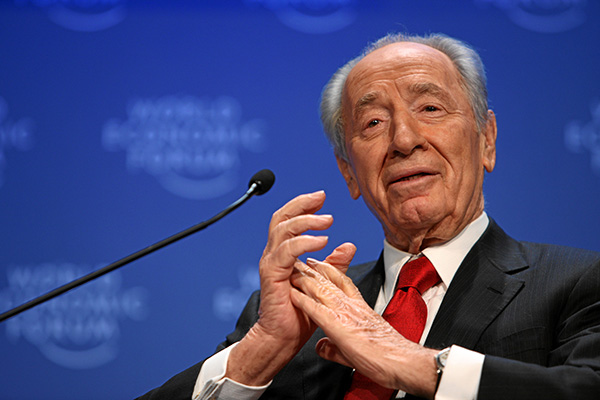UPDATES
Israeli leaders on Syria, revisited
June 14, 2012 | Ahron Shapiro

In a follow-up to last week’s blog post concerning the myth of Israeli backing for Assad, Israeli president Shimon Peres has become Israel’s highest level official to openly back the Syrian rebels against the forces of Bashar Assad.
On Saturday night, Peres told Israel Radio
“The killings are growing more and more every day and it’s scandalous,” Peres said. “I have much respect for the rebels who go out to protests everyday, facing live fire, and I hope they win.”
Meanwhile, on Sunday, Deputy Prime Minister Shaul Mofaz – leader of the Knesset’s largest faction Kadima and a recent addition to the Israeli cabinet – became the top official within Prime Minister Binyamin Netanyahu’s government to call for international military intervention against Assad.
In his own remarks to the media, Mofaz compared the case for intervention against Syria to that of the international response against Libya last year.
“A crime against humanity, genocide, is being conducted in Syria today. And the silence of the world powers is contrary to all human logic,” Mofaz told Israel’s Army Radio.
“Since in the not-distant past the powers chose military intervention in Libya, here the required conclusion would be immediate military intervention to bring down the Assad regime.”
To date, Netanyahu has avoided openly calling for intervention out of concern that such a statement would play into Assad’s hands. “That’s a decision for the leading powers who are now talking about it. The less I say as prime minister of Israel, the better,” Netanyahu told a German newspaper last week.
In his remarks to the press, however, Mofaz stressed that Israel could not intervene – but the West can and should.
“We cannot get involved, for understandable reasons. But I think that the West, led by the United States, has an interest in guarding the threshold (so) genocide does not take place.”
The Kadima leader also lashed out at Russia for continuing to arm Assad.
“[Russia] weakly condemns the slaughter while continuing to arm Assad’s murderous regime. Best-case scenario, this is irresponsible, and worst-case, it is a partnership in the slaughter,” Mofaz said.
Meanwhile, former US Ambassador to the UN John Bolton has also fingered Russia as an accomplice to Syrian repression.
In a piece published in the latest National Review, Bolton called for regime change in Syria as part of an overall US policy shift in the Middle East that would send a message to Russia and Iran.
Syria’s Assad family-Baath party dictatorship had nothing to recommend it before the current conflict, other than its being the devil we knew. Now, it is increasingly an Iranian satellite under Tehran’s growing regional influence. Syria remains a threat to Israel; has continuing aspirations to control Lebanon while serving as a conduit to supply and support the terrorist group Hezbollah; provides a base of operations for Russian military activity in the Middle East; and is quite possibly the site of ongoing, illicit nuclear-weapons activity by Iran and North Korea, despite Israel’s destruction of a Syrian nuclear reactor in September 2007.
Accordingly, regime change in Syria is prima facie in America’s interest as well as the interests of Israel and our Arab friends in the region, who see nothing but danger for themselves if Iran’s hegemonic ambitions unfold successfully.
Bolton outlined three steps that the US should take:
First and foremost, we should cut Syria off from its major supporters. The television images from Syria will not change permanently until the underlying strategic terrain changes permanently. Russia should be told in no uncertain terms that it can forget about sustained good relations with the United States as long as it continues to back Assad…
Next, we should tell Iran that our patience with their decade-long ploy of using diplomacy to gain time to advance their nuclear-weapons program has ended. Tehran should face a stark choice, and we can leave to their imagination what will happen if they fail immediately to dismantle all aspects of their existing nuclear effort. We should also reverse the fantasy still trumpeted by Obama that, despite its repeated violations of the Nuclear Nonproliferation Treaty over 20 years, Iran is somehow entitled to a “peaceful” nuclear program. Until there is a new, trustworthy regime in Tehran, there can be no claim to benefits or “rights” under a treaty Iran has grossly abused. We should introduce this new reality to our European friends as well, perhaps by simply being unambiguous with them.
Finally, in Syria itself, we should do now what we could have begun to do ten years ago (and what the Obama White House at least says it is doing now): find Syrian rebel leaders who are truly secular and who oppose radical Islam; who will disavow al-Qaeda, Hezbollah, and other terrorist groups; and who will reject Russian and Iranian hegemony over their country.
Ahron Shapiro
Tags: Israel





